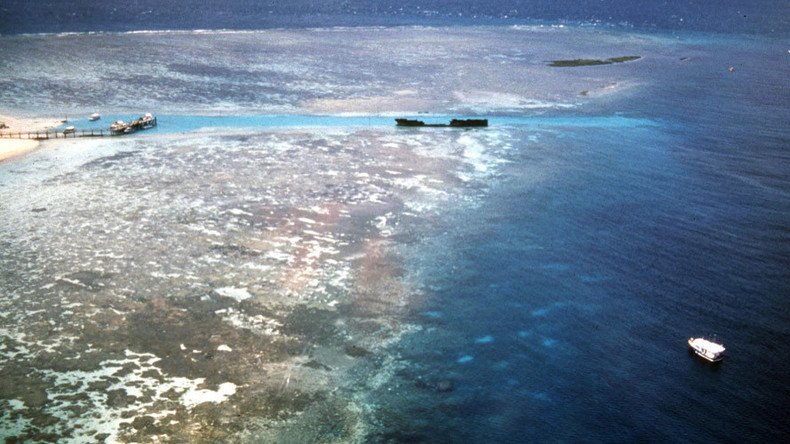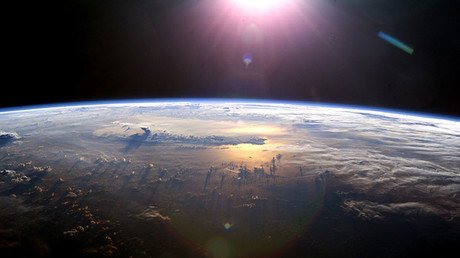Australia’s Great Barrier Reef on brink of collapse - scientists

Australia’s Great Barrier Reef is so damaged it is undergoing a “complete ecosystem collapse,” scientists monitoring the area have warned.
Parts of the Queensland reef are still bleaching even in the Southern Hemisphere’s winter, and fish populations are disappearing. The Great Barrier Reef has suffered from bleaching in as much as 93 percent of the reef, with 80 percent enduring severe bleaching, Climate Central reported in April.
Coral Watch’s Justin Marshall spent a week surveying reefs near Queensland’s Lizard Island and said the lack of fish was the most shocking discovery. “I was seeing a lot less than 50 percent of what was there [before]. Some species I wasn’t seeing at all,” he told the Guardian.
Coral bleaching is the result of warming sea water which causes coral to release algae in an effort to cool. The algae give coral its color. When the coral is unable to cool down and find new algae, it dies and turns a white color. The dead coral then attracts dark algae which give it a brown appearance.
This dark, or ‘turf’, algae block the fish from food and shelter, which causes fish populations to deplete through dying or relocating to more promising food sources.
Coral is less likely to survive bleaching if it has been exposed to high heat and high light conditions. While some coral can recover within days, bleaching damages the reef and weakens it over time.
The deteriorating condition of the Great Barrier Reef has brought the Australian government under fire for failing to prevent the effects of climate change on one of the country’s greatest tourist attractions, despite public support for protecting the reef over supporting mining.
The country continues to extract fossil fuels and approve new mines in spite of the damage it causes.
Some have called for Australia to choose between its reef and its coal and mining industry, particularly in light of the recent approval for the Queensland Carmichael coalmine and the Abbot Point terminal to facilitate the export of fossil fuels.
"Protecting the reef and approving the Carmichael mining lease are diametrically opposed – you cannot do both," Greenpeace spokesperson Shani Tager said.
Prime Minister Malcolm Turnbull has received criticism for his lack of action and preference for industry over conservation. His recent appointment for minister for the environment, Josh Frydenberg, has been nicknamed ‘Mr Coal’ due to his belief that coal is a way to elevate poor people from poverty.
Mr Coal now energy and environment minister - can this end well? https://t.co/aRQkH41AIn
— IndependentAustralia (@independentaus) July 20, 2016
Greenpeace’s Nikola Casule commented on the appointment: “For Malcolm Turnbull to appoint a minister who still believes that there is still a strong moral case for coal even during the worst coral bleaching in the Great Barrier Reef’s history is clear show of contempt for the Australian public.”
READ MORE: Stars in her eyes: ‘Bowie the koala’ rocks music visionary’s iconic gaze
Australia has been accused of failing to make the effort to reduce its carbon footprint when compared to other regions.
“My view is Australia is a filthy, filthy, filthy rich country … if we can’t make a small sacrifice, I don’t see why people in Bulgaria, Brazil, or Columbia – people who enjoy a far lower standard of living than we do – should do it,” Rhodes scholar and University of Queensland professor Hugh Possingham said.













